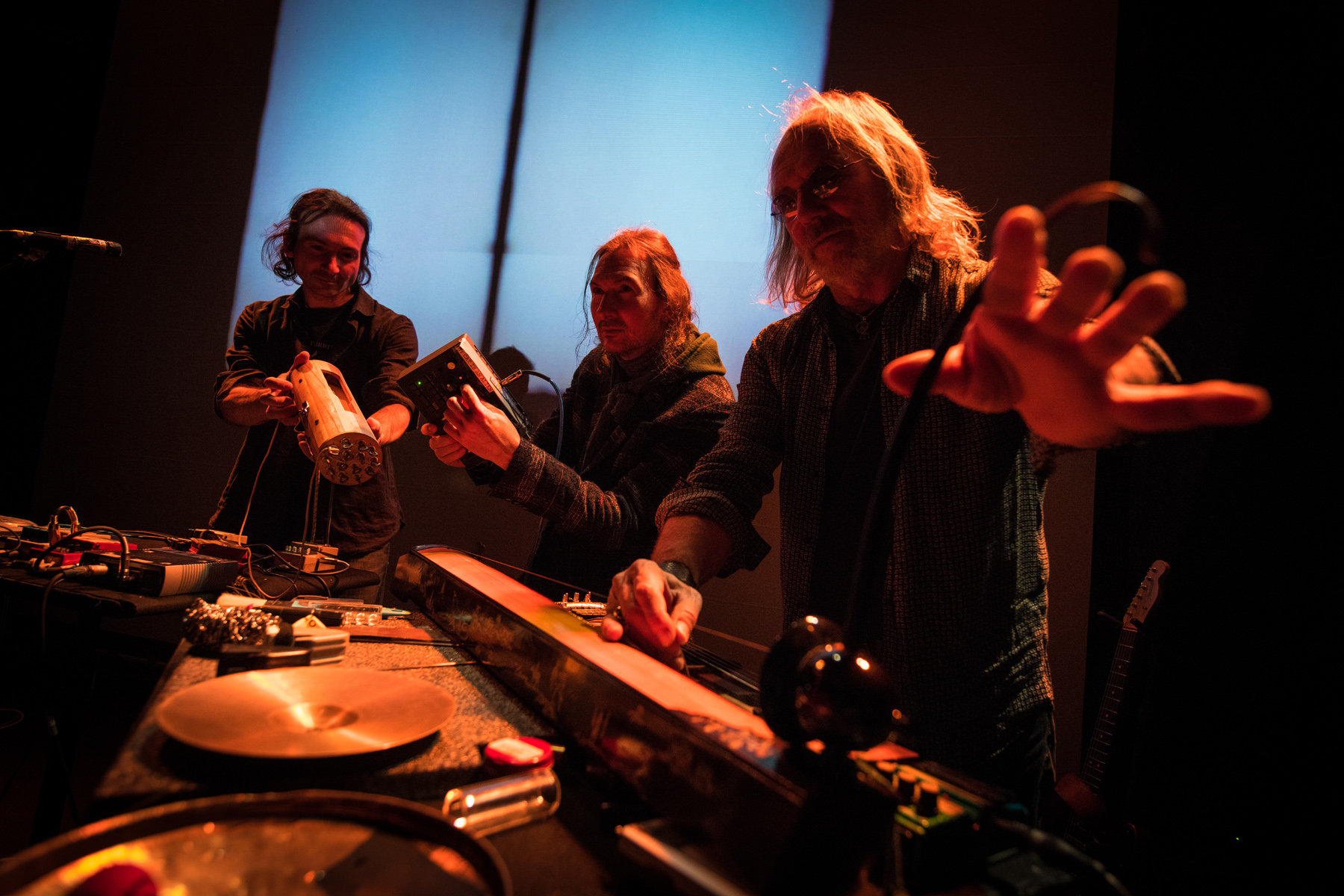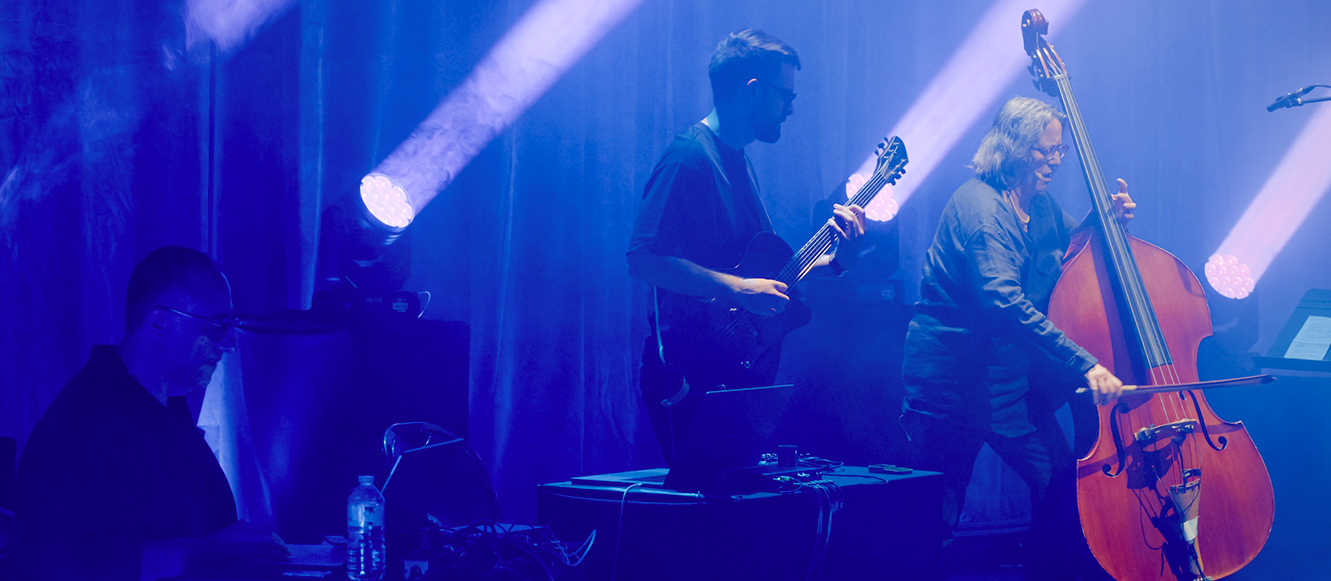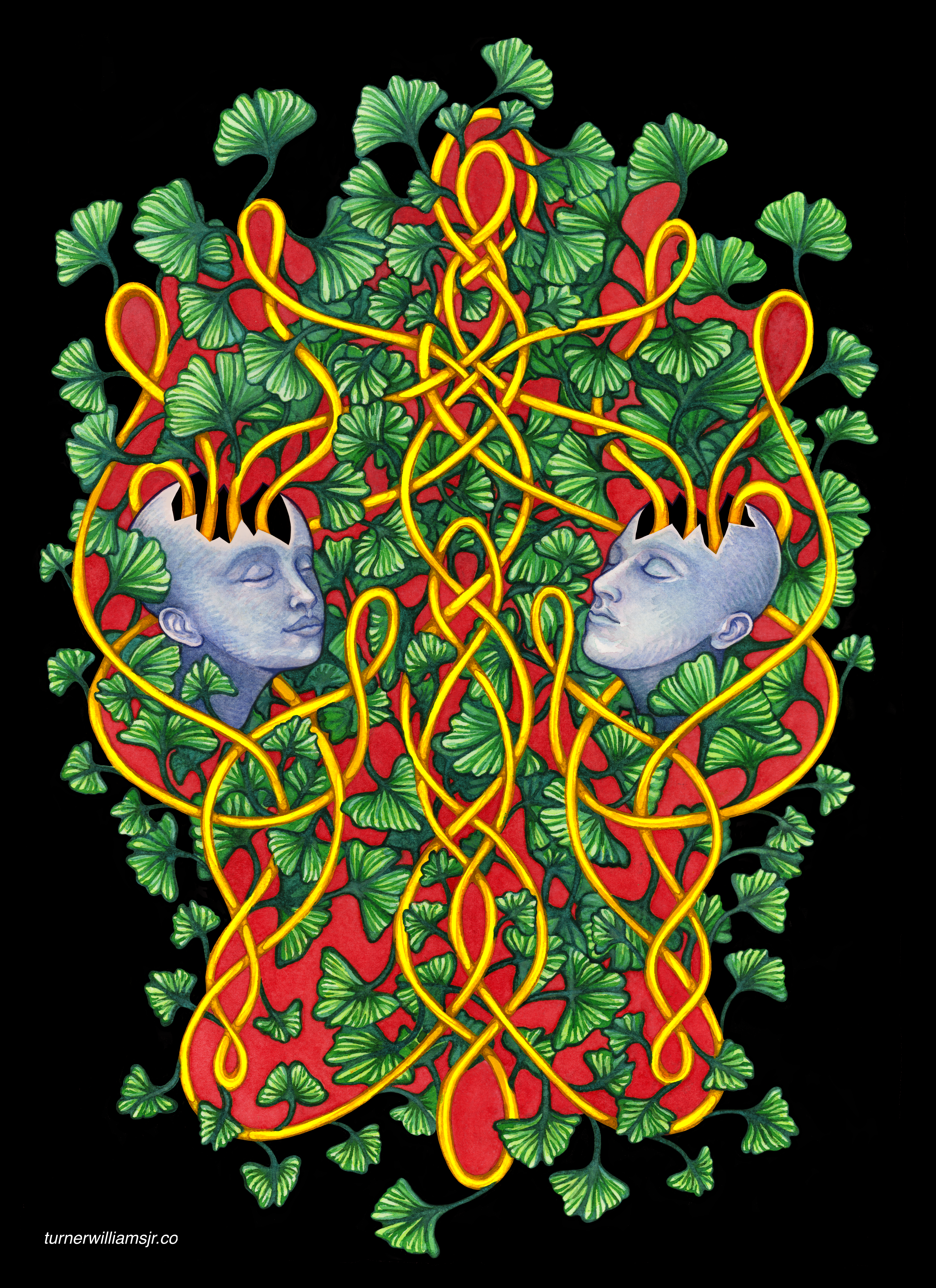As part of JIM2024*
*Journées d'Informatique Musicale, led by the AFIM (Association Française d'Informatique Musicale) and supported by the DGCA (Direction Générale de la Création Artistique)
-
The REACHing OUT! concert series celebrates the most jubilant improvisation around the world, featuring the great double bassist Joëlle Léandre, accompanied by her compatriots the Who/Men, musician-researchers with their machines doped with generative AI algorithms, and guest musicians for each new edition.
The REACH research and creation program behind this new form of performance formulates the hypothesis of co-creativity between players in these improvised interactions incorporating machines, as a kind of mixed reality: building an ever-renewed musical form, emerging from co-constructed sound material that is both unpredictable and controlled, from the rustle of a wing to a volcanic explosion. What if human and machine were to dream of each other, hybridizing human creative energy with cross-listening and cross-learning processes and their feedback loops, in pure pleasure?
"A true encounter, a jubilation... It's a risk and a unique, infinite moment! It's undoubtedly searching and perhaps finding... In the end, it's 'knowing how not to know'." - Joëlle Léandre
As part of the JIM2024 (Journées d'Informatique Musicale) organized by the AFIM (Association Française d'Informatique Musicale) and supported by the DGCA (Direction Générale de la Création Artistique).
Coproduction
Ircam - Centre Pompidou ; GMEM
With the support and technologies of the ERC REACH (director: Gérard Assayag), funded by the European Research Council of the European Union, Horizon 2020 research and innovation program.
Partnership
Ircam - Centre Pompidou ; Friche la Belle de Mai

A French guitarist with a rock background, specializing in free improvisation and sound experimentation, Jean-Marc Montera uses the entire range of amplified and acoustic strings - resonance, percussion, distortion, extensions and detour of all kinds. Among the most active musicians in the field of improvised music, he has been multiplying his encounters and contacts with other artistic worlds since the 1970s, to the point of blurring the "barrier" between genres.
Joëlle Léandre
Bassist
Born in Aix-en-Provence in 1951, Joëlle Léandre is a French double-bass player who specializes in contemporary, improvised and jazz music. She is also a vocalist, often adding her voice to her instrumental improvisations. In contemporary music, Joëlle Léandre has worked with Merce Cunningham, Morton Feldman and John Cage. She has performed with the Ensemble InterContemporain and 2E2M. Composers John Cage, Betsy Jolas and Giacinto Scelsi have written pieces for her.
Joëlle Léandre is also extremely active in the world of improvised music and jazz. She has collaborated with Derek Bailey, Anthony Braxton, George Lewis, Barre Phillips, Evan Parker, Irène Schweizer, Steve Lacy, Fred Frith, Carlos Zingaro, John Zorn, Susie Ibarra, J. D. Parran, Ernst Reijseger and Sylvie Courvoisier. She has written extensively for dance (notably for Josef Nadj and Cécile Loyer) and theater, and produced several multidisciplinary performances. Her reputation is international; her activities as a creator and performer, both solo and in ensemble, have taken her to the most prestigious stages in Europe, America and Asia. She has made over 250 recordings and received the Lifetime Achievement Award in 2023 in New York for her body of work and her commitment to free creation.
Gérard Assayag
Ircam Research Director
Gérard Assayag founded and heads Ircam's Musical Representations team within the STMS (Sciences et technologies de la musique et du son) laboratory. He headed this laboratory from 2011 to 2017, and in this capacity was involved in national and international research policies in music and sound sciences. Gérard Assayag has contributed to the creation of several major institutions such as the Collegium Musicae and the Institute of Artificial Intelligence at Sorbonne University, and the Society for Mathematics and Computation in Music.
Through his numerous publications and software creations (openmusic, omax, somax), he has defined and popularized the concepts of symbolic interaction and co-creativity, so as to account for a rich and versatile human/machine musical dialogue, prefiguring future generations of creative AI. He is the recipient of the prestigious ERC advanced Grant from the European Research Council for his REACH project (Raising co-creativity in cyber- human Musicianship), which will support numerous research and creation activities in 2021 - 2025.
Marco Fiorini
Musician and researcher
Marco Fiorini is dedicated to improvisation and new forms of musical expression, with a mixed artistic and scientific background. He holds degrees in Sound and Music Computing from Aalborg University in Copenhagen, Denmark, in Jazz Guitar and Electronic Music from the Conservatory of Bologna and in Computer Engineering from the University of Bologna in Italy. He is a member of the Musical Representations team in the STMS laboratory at Ircam, where he is involved in research linked to the REACH project, in particular on the Somax2 co-creative improvisation software, and is exploring new forms of interaction in improvised music with artificial agents, as part of a doctoral thesis at Sorbonne University. He has given numerous concerts, presentations and workshops in several countries, oscillating between free improvisation, spontaneous composition, sound performance and sound art. He performs at prestigious improvisation and contemporary music festivals such as ManiFeste (Centre George Pompidou, Paris), Klang (Royal Danish Academy of Music, Copenhagen), Mixtur (ESMUC, Barcelona) and Improtech.
György Kurtág Jr.
Composer and researcher in electronic and experimental music
A multi-faceted musician, researcher, creator, teacher, composer and improviser, György Kurtág Jr. has organized his entire artistic and research career around the concept of collective intelligence. In 1980, after studying composition in Budapest (Hungary), he joined Ircam (Paris), following in the footsteps of his mentor Peter Eötvös. As a composer-researcher, he worked with some of the most influential researchers in the field of computer music, including Tod Machover (M.I.T Medialab, Boston), David Wessel (C.N.M.A.T Berkeley), George Lewis (Center for Jazz Studies Columbia University, New York), as well as composers Mauricio Kagel, Pierre Boulez, Sylvano Bussotti and Peter Eötvös. A founding member of SCRIME (Université de Bordeaux), he has been its Arts-Sciences Coordinator since 2013. His status as Associate Researcher at LABRI enables him to combine artistic creation with research into musical pedagogy.
A plural author, his name is associated with the visual arts and images. He has received musical commissions from the Centre Georges Pompidou, the Musée du Louvre and the Musée de Grenoble. As a composer, his piece "Dialogue pour Synthétiseurs et Orchestre" was performed at La Scala (Milan) in 2018, and "Zwiegspräch" the string quartet version in New York (Carnegie Hall), London (with the Arditti Quartet) and at the Luzern Festival
As an improviser, he was a guest at the Solomon R. Guggenheim Museum (New York) during the Moholy-Nagy exhibition in 2016). Tours with the Moment's Notice Trio between 2015-2019 (USA, China and Europe). He records with double bassist Barre Phillips (ECM "Face à face" (2022) and collaborates with him on the Centre Européen Pour l'Improvisation project, of which he has been president since 2022.
Mikhail Malt
Researcher, musician, composer
Mikhail Malt, with dual scientific and musical training in engineering, composition and conducting, began his musical career in Brazil as a flautist and conductor. He is the author of a thesis in musicology, at the École des hautes études en sciences sociales, on the use of mathematical models in computer-assisted composition, as well as an HDR. He was an associate professor at the Sorbonne Paris IV from 2006 to 2012, and a lecturer in computer music at the pedagogical department of Ircam, Paris-France until 2021. He is currently a researcher in the REACH project of the Representations Musicales team at Ircam, and an associate researcher at iReMus-Sorbonne in Paris. He pursues his creative and research activities on generative music, creative systems, the epistemology of representation and different listening strategies.
Turner Williams Jr.
Artist and musician
Turner Williams Jr. is an American visual artist and musician living in Marseille. He plays the shahi baaja, an electrified plucked or rubbed string instrument of the zither family that uses typewriter keys to modify pitch. Like Williams' own playing, this instrument is a transcultural mutation of the 20th century, with its European, Asian and American sources, and its hybridization of folk, underground and contemporary electronica. Williams' experience and self-taught technique emerge from an obstinate practice of automatism, accident and listening. His music refracts the hybrid and popular nature of shahi baaja through an unbridled and personal process, as dispersed as it is syncretic. He has been invited to perform at festivals including No Jazz in Paris, Le Guess Who in Utrecht, Kraak Festival in Antwerp, Improtech in Uzeste and Tokyo, Festival de Guyenne, Les Instants Fertiles at Athenor (Saint-Nazaire), and collaborates regularly with the REACH project at Ircam.
Friche la Belle de Mai (Petit Plateau)
41 Jobin Street13003
Marseille
RATES
Full 8€
Reduced 6€
Free admission for JIM2024 participants (reservation required).
DURATION
approx. 1 h 30
PRACTICAL INFORMATION
Latecomers will not be admitted to the auditorium, as some shows - at the request of the artistic teams - do not allow late entrances.
The GMEM is committed to the environment and invites you to use sustainable means of transportation.
REACHing Marseille
duration: 40 min.
György Kurtág Jr.
synthesizers and electronics
Jean-Marc Montera
guitars, analog electronics
Turner Williams Jr.
shahi baaja, analog electronics
The Who/Men
composed of
Gérard Assayag
Marco Fiorini
Mikhail Malt
Somax2 generative electronics
intermission with generative sound installation
duration: 15 min.
Joëlle Léandre & The Who/Men
duration: 40min.
Joëlle Léandre
double bass, vocals
The Who/Men
composed of
Gérard Assayag
Marco Fiorini
Mikhail Malt
Somax2 generative electronics




